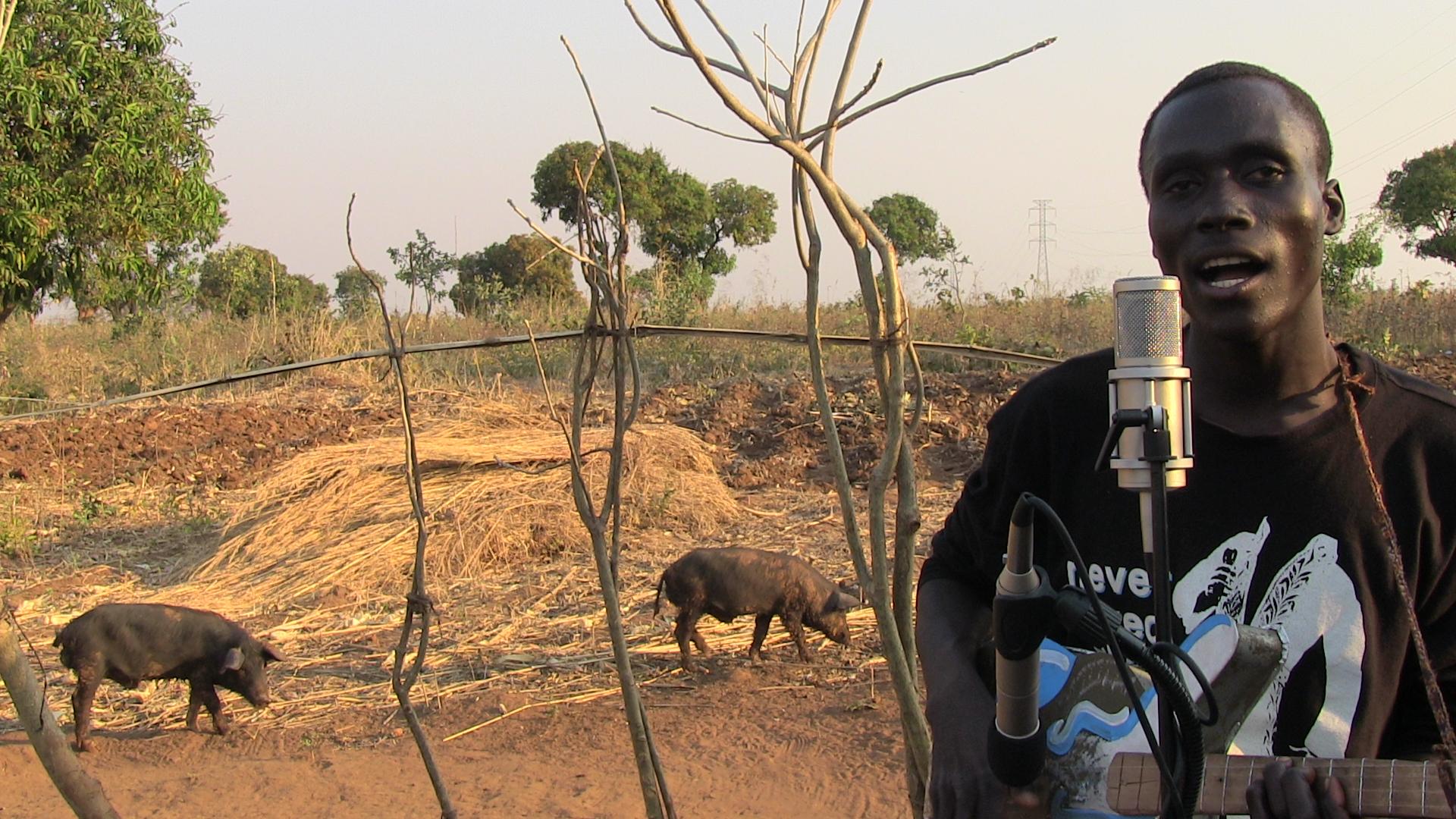Most of the time, you can find Alfred Gavanala on the side of the road selling strange fare to passersby: roasted mice on a stick.
It’s one of a few options he has to make money in his village in Malawi, usually bringing in the equivalent of 50 cents to a dollar a day. But on one day in 2011, thanks to a guitar fashioned out of scrap metal, that all changed.
He was playing the guitar alongside the road when Ian Brennan found him. Brennan and his wife had been travelling for weeks, more than 2,000 miles, with a single mission — to discover untapped musical talent.
Brennan drove by Gavanala, but quickly pulled a U-turn. He got out of the vehicle and asked Gavanala to keep playing. He was reluctant, but with encouragement from some of his friends in his village, the musician obliged.
“He’s very shy, and when he played the song it was almost inaudible,” Brennan recalls. “But it was obvious that it was a well-written song, very melodic.”
And when Gavanala reached the chorus, he says, "all the kids around suddenly joined in and were pushing in and surrounding us, and it was like stereophonic sound.”
Brennan was smitten with the song. The next day, he held an impromptu recording session, and Gavanala brought his own accompaniment. He and seven of his friends had taught each other since childhood how to make music and build their own instruments with whatever supplies they could salvage.

“They just kept bringing instruments and people kept jumping in the truck every 50 yards,” Brennan says. “So by the time we were done, we had a truckload full of guys.”
The sessions are something completely unique. The music was recorded outside, and the tracks are punctuated with dogs barking, children playing and the odd passerby contributing backing vocals. It was also the start of the Malawi Mouse Boys — named, of course, after the food the band members sell.
The band describes their music as gospel — “We believe there is meaning in this world and that life should be celebrated, despite the difficulties,” says bandmember Nelson Muligo — but Brennan claims it’s in a genre all its own.
“People grasp at influences," he says. "It’s such an easy, or maybe obvious or comforting way for people to relate to music — to believe that they’ve listened to this band, or they’ve listened to that band. And it’s just not so. They’ve listened to very little recorded music.”
Brennan recalls a recent interview in which he was asked how much influence the band draws from Ladysmith Black Mambazo. "Not at all. They have no idea who they are. None. Zero,” he says. “It’s kind of beyond the grasp of, maybe, a music critic in America, but [the band] doesn’t know who Paul Simon is.”
Their homegrown sound simply developed from whatever the boys could find at hand. "Nelson [Muligo] is our leader,” Gavanala says. “He inspired and taught us to play. He can play almost anything and figured out ways to make instruments from the rocks, metal, and tree branches that we would find.”
“Since we live without electricity, we did not listen to radio or records, but to each other,” Gavanala says.
That sort of adversity, of course, makes other challenges seem petty — like performing in front of a crowd, for instance. “Playing music is not scary,” says Zondiwe Kachingwe, one of the band’s singers. “It is what we do. Performing is easy, life is hard.”
“It was shocking how easy it was for them,” says producer Ian Brennan. “But in comparison to what they’ve endured and what they face in daily life and in their upbringing, I think that stagefright just seems trivial, really.”
The band’s first performance outside of Malawi was in London at the 2013 WOMAD music festival, which led to a US tour later that year.
“It was a like a dream. No one in our families and none of our ancestors had ever been outside of Malawi or on an airplane,” explains Kachingwe. “In fact, many people at home still do not believe that we really were in Europe and America. They think that we are lying.”
While just the ability to travel outside of their country is remarkable for the Mouse Boys, sharing their music with the world is what they strive for.
“We are very proud that so many people have learned of our small country through our music,” says Josephy Nekwankwa, another of the band’s vocalists. “We love to see people happy when we play.”